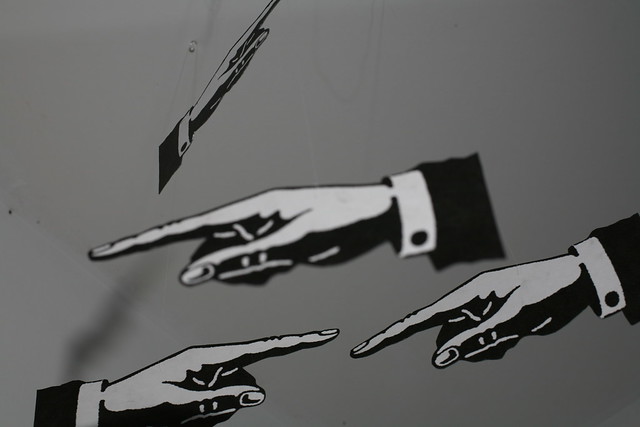Over the past month I’ve been in very similar conversations with three different clients. They’ve gone something like this:
Client: I think some of my people think I’m a real a$$hole.
Me: Why might they feel that way?
Client: Because before I arrived nobody demanded much of them and I do.
Me: What do you think they experience when you’re being demanding?
Here’s why I ask the second question. I believe there is an important difference between managing people in a way that is demanding versus demeaning. Some leaders do not understand this distinction:
Demanding leadership involves setting high, often uncompromising standards that you expect the people in your organization to live by. Being a demanding leader involves a willingness to give respectful yet critical feedback in ways that may cause discomfort in others— at times people may rightly feel that their jobs are at stake. Yet demanding leaders always extend respect, dignity, and developmental support while at the same time, asking people to stretch.
Demeaning leadership is based on the assumption that the only way to motivate people is through fear and intimidation. Demeaning behaviors include what I call the four B’s –
1. Belittling – disparaging or insulting others and their ideas in ways that cause them to feel insignificant.
2. Brushing aside – not seeing or acknowledging the existence or value of another.
3. Bullying — intimidating, threatening, and railroading others in order to get your way.
4. Blaming – pointing the finger at others as the cause of a problem.
Leaders that use these strategies (think Donald Trump and Steve Jobs) will tell you that it’s the only way to get high performance out of people. I don’t buy it. I know that the same results are achieved through demanding leadership minus the demoralizing treatment. Additionally, while demeaning leadership may produce results in the short-term, it simultaneously chips away at employee loyalty and motivation.
In his book, The No Asshole Rule: Building a Civilized Workplace and Surviving One that Isn’t, author Robert Sutton writes:
Two tests that I use for spotting whether a person is acting like an asshole — Test One: After talking to the alleged asshole, does the ‘target’ feel oppressed, humiliated, de-energized, or belittled by the person? In particular, does the target feel worse about him or herself? Test Two: Does the alleged asshole aim his or her venom at people who are less powerful rather than at those people who are more powerful?”
How do you use your power, especially with people who possess less of it than you?
Photo credit: J E Theriot

wonderful and timely blog, Larry, as I contemplate a big new leadership role.
Larry, this post made me think of Brene Brown’s book, Dare to Lead. This quote is taken from a synopsis of the book:
“Leadership is not about titles, status, and wielding power. A leader is anyone who takes responsibility for recognizing the potential in people and ideas, and has the courage to develop that potential.
When we dare to lead, we don’t pretend to have the right answers; we stay curious and ask the right questions. We don’t see power as finite and hoard it; we know that power becomes infinite when we share it with others. We don’t avoid difficult conversations and situations; we lean into vulnerability when it’s necessary to do good work.”
Some of the people I’ve respected most as leaders were those who stayed curious and asked questions of the people working for them, therefore making them feel heard and smart. The best combination I’ve experienced is a leader who is demanding yet also trusts and allows the people working for her/him to solve the big problems. I think the truth is that “demanding” can be fulfilling– most people actually want to solve the big problems and find tremendous job satisfaction in doing so!
Thanks for your post!
Thanks Larry for this keen insight! It will be helpful to me and my team.
You are so welcome Debra. We all want to achieve outcomes, have impact, and touch the hem of excellence! And in some cases (certainly speaking for myself) we get swept up in the outcome and self-justify our less-than-compassionate behavior toward others. One question I’ve been carrying lately in my back pocket — “How am I carrying in my power and privilege today?”
Larry and Ileana,
I appreciate the distinctions and nuances. I particularly like the clarification that demanding includes clarity of standards, constructive criticism delivered with respect and an invitation to stretch, or as Brene Brown sees it, develop the potential of the person/team.
It seems that being mean may be fast, easy…and unmotivating. While being clear, respectful and challenging develops trust and strong rapport…which has personal benefits and productivity benefits, too.